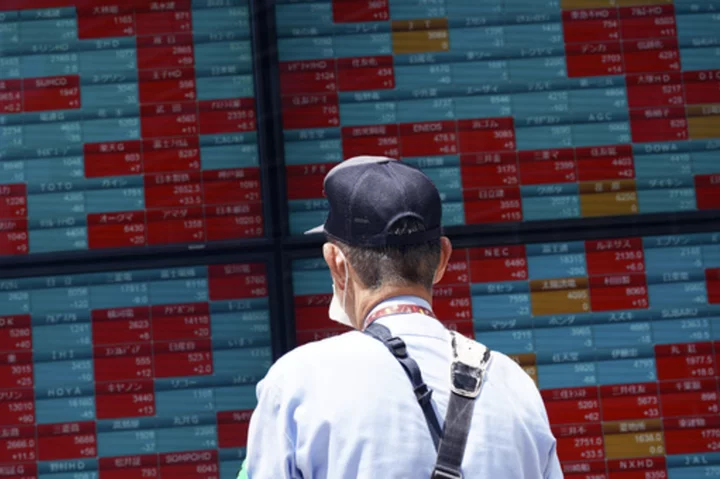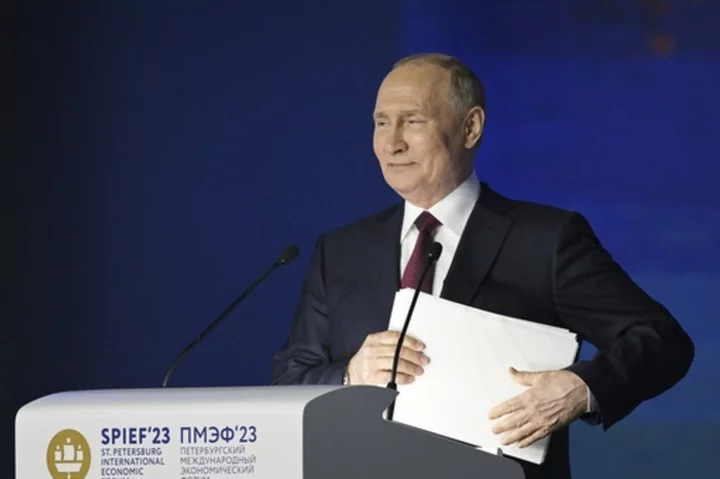BEIJING (AP) — Asian stock markets slid Wednesday as the U.S. government crept closer to a potentially disruptive default on its debt.
Shanghai, Tokyo and Hong Kong declined.
Wall Street's benchmark S&P 500 index fell 1.1% on Tuesday after Speaker Kevin McCarthy of the House of Representatives said, “We’re not there yet” on a deal. That followed a meeting Monday with President Joe Biden that ended with no agreement.
“McCarthy’s comments have thrown cold water” on sentiment, said Vishnu Varathan of Mizuho Bank in a report. He said the slide in prices is “paying back for premature optimism around a debt deal.”
The Shanghai Composite Index lost 0.8% to 3,220.44 and the Nikkei 225 in Tokyo fell 0.6% to 30,777.29. The Hang Seng in Hong Kong shed 1.2% to 19,203.05.
The Kospi in Seoul retreated less than 0.1% to 2,566.68 and Sydney's S&P-ASX 200 lost 0.6% to 7,215.40.
India's Sensex opened up 0.2% at 62,140.23. New Zealand and Bangkok gained while Singapore and Jakarta declined.
Republicans in Washington are pressing for cuts in aid to the poor and other spending in exchange for agreeing to raise the amount the government can borrow. Biden has proposed a mix of cuts and higher taxes on the richest Americans, which McCarthy has rejected.
Without an agreement, Treasury Secretary Janet Yellen says the government will run out of cash to pay bills on about June 1. That could send shockwaves through the global financial system.
On Wall Street, the S&P 500 fell to 4,145.58. The Dow Jones Industrial Average dropped 0.7% to 33,055.51 and the Nasdaq composite lost 1.3% to to 12,560.25.
Market prices of Treasury debt that is due to be paid around the date of a possible default have fallen due to uncertainty about payment.
The yield on the 10-year Treasury, or the difference between the market price and the payout at maturity, ticked down to 3.70% from 3.72% late Monday.
The yield on the two-year Treasury widened to 4.34% from 4.32%.
Markets already were worried about slowing global economic growth following interest rate hikes in the United States, Europe and Asia to rein in surging inflation. Three high-profile bank failures in the U.S. and one in Switzerland have also kept markets on edge.
Manufacturing and other areas of the U.S. economy are struggling under the weight of higher rates.
In energy markets, benchmark U.S. crude rose 82 cents to $73.73 per barrel in electronic trading on the New York Mercantile Exchange. The contract advanced 86 cents on Tuesday to $72.91. Brent crude, the price basis for international oil, gained 72 cents to $77.56 per barrel in London. It added 85 cents the previous session to $76.84.
The dollar declined to 138.26 yen from Tuesday's 138.48 yen. The euro gained to $1.0787 from $1.0776.









